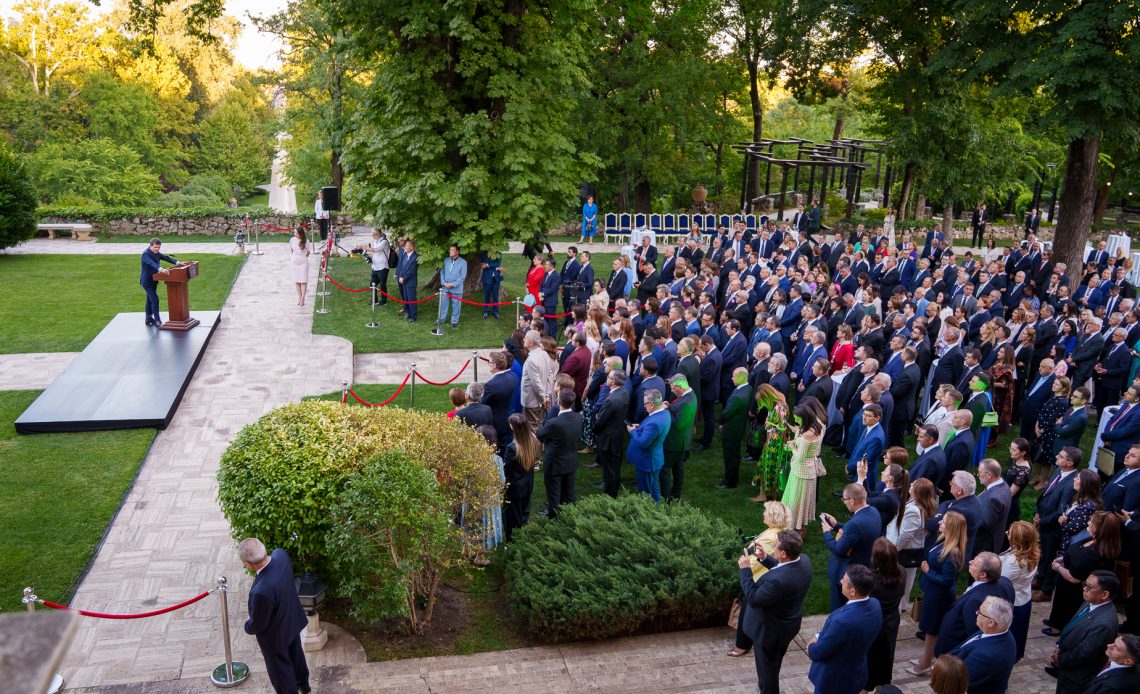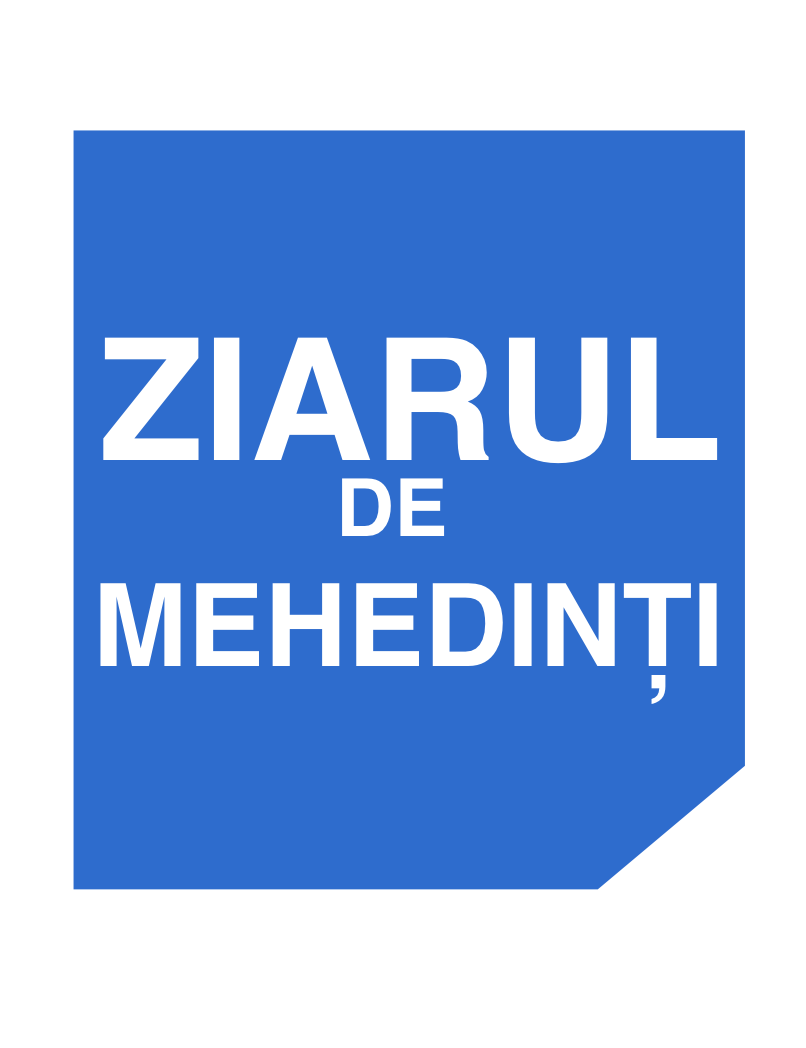
H.E. Ion JINGA, Ambassador Extraordinary and Plenipotentiary, Permanent Representative Council of Europe.Motto: “My life has been a continuous struggle to carve out a place
for Romania in the life of the world, while also defending its national
interests.” – Nicolae Titulescu (Romanian diplomat, Foreign Minister, President
of the League of Nations 1930-1932)
One
of the most known descriptions of the role of diplomacy in international
relations belongs to Lord Henry Palmerston, British Prime Minister, in a speech to House of Commons, on 1
March 1848: “We have no eternal allies,
and we have no perpetual enemies. Our interests are eternal and perpetual, and
those interests it is our duty to follow.” One may be tempted to consider
such a cynical definition outdated; however, as French chemist Antoine
Lavoisier noted: “In nature nothing is
lost, nothing is created, and everything is transformed”.
Today,
diplomacy is generally considered as the practices and strategies of conducting
negotiations between states and international actors, in order to pursue their
interests. Henry Kissinger defined diplomacy as “the art of restraining power”, while Professor Yoav
Tenembaum (Tel Aviv University) considers “diplomacy is the art of restraining force”. By creating alliances, partnerships
and international cooperation formats, diplomacy increases influence – which is
an element of power – and therefore I believe diplomacy may also be seen as the
art of increasing power. Effective
diplomacy is
often associated with the concept of “soft
power”, formulated by American political scientist Joseph Nye as being “the ability to influence others and achieve
desired outcomes through attraction and persuasion rather than coercion or
payment”.
After
WW2, key international organizations have been created, most of them in Europe (the
continent where both World Wars sparked), with the goal to prevent war and
promote cooperation: the United Nations, the Council of Europe, the European Communities
(precursors of the European Union), the Organization for Security and
Cooperation in Europe. With the adoption by the UN General Assembly in 1948 of
the Universal Declaration of Human Rights, human rights protection gained
global coverage, becoming a “new
religion” in diplomacy. As Alain Berset, Secretary General of the Council of Europe,
remarked on 3 September 2025: “Massive
violations of human rights and international law know no borders. Every
violation of international law is a weakening of our values. What happens beyond our geographical
borders is also our problem. Because if we were to consider that our values
know borders, we would only weaken them”.
One
of the first definitions of the profession of diplomat is attributed to Sir
Henry Wotton, the envoy of King James VI of England to Venice, in 1604: “An
ambassador is an honest gentleman sent to lie abroad for the good of his
country”. 200 years later, Charles Maurice de
Talleyrand-Perigord, Napoleon’s foreign policy chief and widely considered one
of the most skilled diplomats of all times, noted: A diplomat who says “yes” means “maybe”, a diplomat who says “maybe”
means “no”, and a diplomat who says “no” is ”no diplomat”.
After
33 years in the Romanian diplomatic service, of which almost 23 years as
ambassador, I reached to the conclusion that diplomats are made, not born. No
one is born with the ability to practice international diplomacy, which
requires to understand foreign societies, influence governments, conduct
negotiations, anticipate threats and take advantage of opportunities. These
skills have to be acquired, and therefore professional diplomatic services
require training, tools and resources. Diplomacy is learned from books, from practice
and from inspirational role models.
Good diplomats do not confuse information
with analyses, and analyses with judgements – which come from knowledge and
experience. Good diplomats have the capacity to absorb and process large
amounts of information from different sources, communication skills and high
integrity. A key asset is credibility, because good diplomats must be able to
convince other people to embrace their ideas. Credibility is based on impeccable reputation, which is a strong
currency in international relations. Above all, good diplomats must show an unwavering
loyalty to their country’s interests. General Charles de Gaulle, whose boldness,
resilience, and love of France continue to inspire, once said: “It is by serving one’s homeland
that one best serves the universe; the greatest figures in the universal
pantheon were first great figures of their country.” Fifty five years since
his passing, this insight remains highly relevant.
Promoting
national interests requires both patriotism and global cooperation. As Professor Yuval Noah Harari argued: “There is no contradiction between globalism
and patriotism. Patriotism is about taking care of your compatriots, and in the
21st century in order to take good care of your compatriots you must
cooperate with foreigners. So, good nationalists should now be globalists. Globalism means a commitment to some global
rules. Rules that don’t deny the uniqueness of each nation, but only regulate
the relations between nations.” (21 Lessons
for the 21st Century)
Modern
diplomacy relies on connectivity, fluid networks and collaboration. Thanks to
the internet, we live in the age where the audience is always in the same room
with us, information technology is now part of diplomacy and the ability to use
social media became mandatory attributes of diplomats. With the transition to
digital diplomacy, the diplomatic lifestyle which has existed for decades
started to fade. But this sense of modernity may impact on the intimacy of diplomatic
discussions, because personal chemistry between diplomats is not to be
underestimated, and anyone who has spent time in international negotiations can
confirm the added value a discreet chat may have for their outcome.
Platforms
like X, Instagram, Truth Social or Facebook provide huge amounts of information,
together with a huge challenge: “Information is the food
of the mind. Too much information just isn’t good for us. If we fold the mind
by an enormous amount of information, we don’t give the mind any time to digest
it” (Y.N. Harari, 26 August 2025).
Finally, foreign policy cannot be
separated from people’s expectations. Quoting Henry Kissinger: “No foreign policy – no matter how ingenious
– has any chance of success if it is born in the minds of a few and carried in
the hearts of none”. Communication of foreign policy action must therefore
go beyond press releases that use specialized vocabulary, and share with the
large public how diplomacy promotes their interests. Social
media has become an important tool, but it does not represent diplomacy itself.
Messages lacking empathy can create the perception that diplomacy mainly consists
of privileges and participation in social events. The reality is that good
diplomats have more to do with sacrifice and refrain, than with champagne and
caviar.
We are in the midst of fundamental
transformations in international relations, a period in which the old order is
being diluted and the new order has not yet coagulated. Adapting to this
reality requires diplomats the courage to break away from reactive patters in foreign policy, generating ideas, anticipating developments, and offering to political leaders
solutions for validation. As President John F.
Kennedy put it: “Change is the Law of life, and those who
look only to the past or present are certain to miss the future”.
Despite
all these changes, diplomacy remains the lifeblood of the
international system,
a center piece for listening to, and understanding the positions of various
parties. In the hectic world of
today, diplomats are nations’ soldiers of
collaboration. To advance their country’s goals and find ways to cooperate with
other nations, diplomats sometimes sail in unchartered
watersand
become promoters of a new concept of globalization.
Instead of conclusions,
the words of the President of Romania, Nicusor Dan, at the Annual
Meeting of Romanian Diplomacy on 26 August 2025: “Externally, we are witnessing multiple crises for several
years now: the war in Ukraine; a global competition more intense, focused on
the economy, on resources; technology is becoming increasingly important;
hybrid warfare, including in our own part of Europe. In the face of these
changes, it is obvious that diplomacy must adapt and I am convinced we have the
strength to do so. Our foreign policy must remain
predictable and coherent. Membership in the European Union, membership in NATO,
the strategic partnership with the United States, respect for the international law and the rules-based global
order, dialogue and cooperation with international partners. These
are things that we will not change”.
